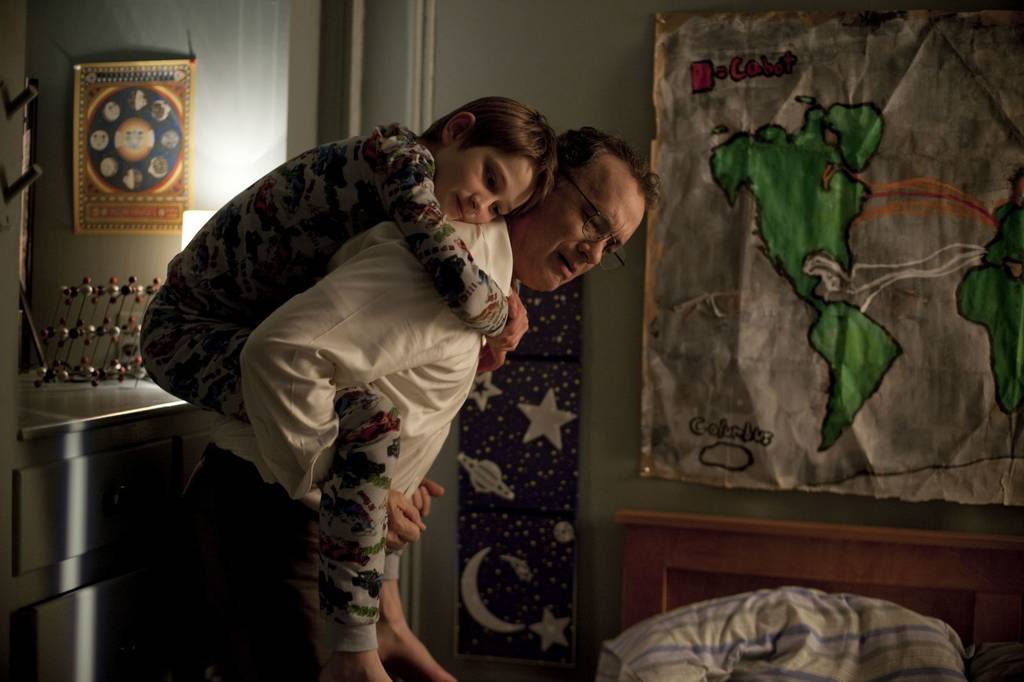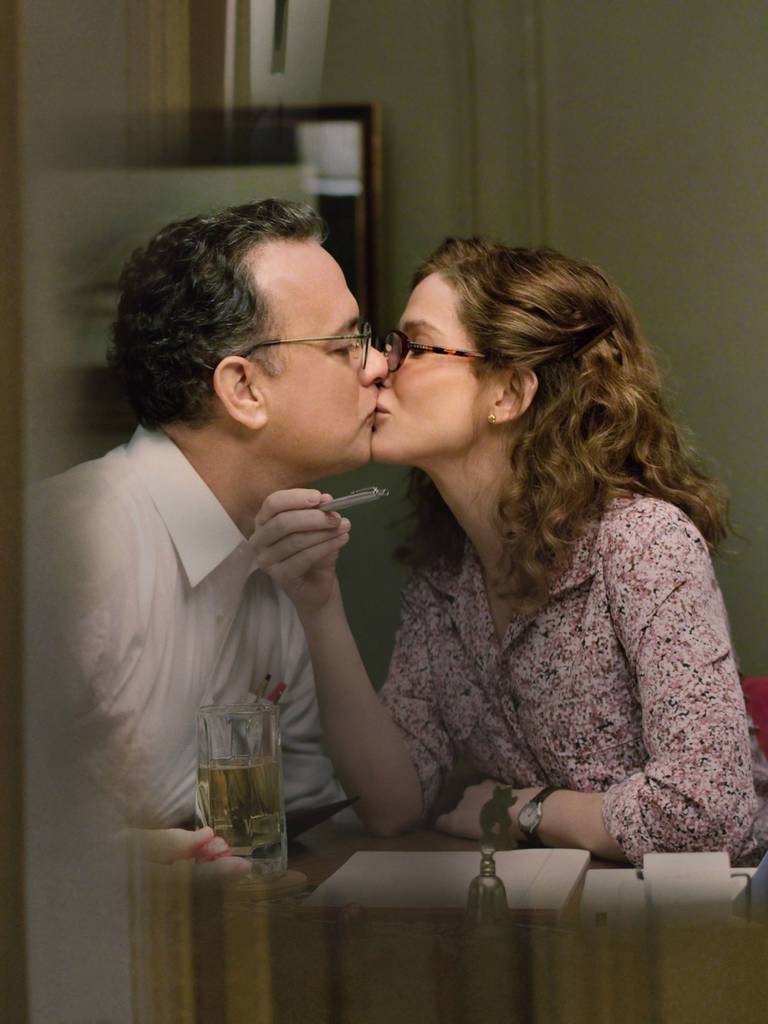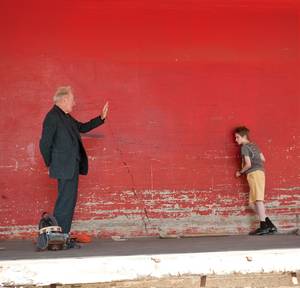
The successful construction of a dramatic prestige picture is similar to that of a horror film. An intelligent director takes the time and consideration to create an atmosphere and developed their characters to have their audience fully invested in the story. Then there are films that just use cheap tricks to force an emotional response. In that regard, Stephen Daldry’s Extremely Loud and Incredibly Close (2011), is not different to a film such as Hostel (2005). Both rely on circumstances not characters to get their audience invested and neither is particularly compelling because of this.
Adapted from Jonathan Safran Foer’s 2005 novel, Extremely Loud and Incredibly Close is the story of Oskar Schell (Thomas Horn), a young, possibly autistic, boy who lost his father Thomas (Tom Hanks) in the terrorist attacks on September 11, 2001. A year after the attacks, Oskar believes that his father has left him one last message hidden somewhere in New York City. Despite Linda, his mother’s (Sandra Bullock), disapproval, he searches throughout the city, in order to have one final memory of his father.

Extremely Loud and Incredibly Close in many ways is a difficult film to critique because it is a well-made product, not a movie, but a product. The cinematography is gorgeous, it is beautifully scored, and the editing between the past and present is well done. All of this contributes in creating a feeling of whimsy in a fantasy world. Unfortunately, it feels completely wrong for the tone of this movie. It is not that this type of story cannot be told, but for that story to be successful, the audience has to be fully invested in the characters and believe them to be real people. To put things simply, I did not see any of the main characters as real human beings. What I saw was characteristics trying to masquerade as characters.

The blame lies solely on Daldry and screenwriter Eric Roth, both talented individuals who are simply going through the motions. I hate to compare a novel to its film adaptation because they have different benefits and limitations, so a film should be judged by the standards I have for a film. However, as a fan of the novel, its incredibly frustrating and borderline offensive to see the script gut the story of anything that was remotely genuine and heartfelt, leaving only the potential gimmicks from the novel. While 9/11 and the questions of autism was a component of the story, the emotional investment came from Oskar being forced to maturity and longing to return to the time where the world was a simple place. Here the narrative follows a pattern of: mentioning September 11th, Oskar acts cruelly to other characters; narration telling you that he ‘might’ have autism and cry. This pattern is repeated throughout the movie with the subtlety of being punched in the gut.
It’s a shame because I really like this cast and, had they been given stronger material, Extremely Loud and Incredibly Close could have been something special. Both Tom Hanks and Sandra Bullock, as the most ideal Hollywood parents possible, should have been able to ace these performances. Though once again, the script does not give these characters a lot to work with, instead both are reduced to relying on their personae, not their performances, to connect with the audience. Thomas Horn, the young actor making his film debut, shows signs of talent. While his character is weighed down by forced quirky characteristics, at the core there is a real kid and while his character may come of as strange or obnoxious, he is constantly compelling.

It is during the smaller moments in the narrative, that the audience gets to see small glimpses of greatness. Watching Horn interact with gifted character actors and actresses such as Jeffery Wright, Viola Davis and John Goodman provides much needed moments of subtle heartbreak. However, Extremely Loud and Incredibly Close is at its best whenever Max Von Sydow is on the screen. As the mute, mysterious old man that Oskar befriends, Von Sydow gives a silent performance that rivals the cast of The Artist (2011). Just by watching his face, there is a wide range of confused and complicated emotions that lures you into his history. He is a fascinating character and like the best supporting performances, Von Sydow’s presence shadows over the movie. His performance is the saving grace in an otherwise bland movie-going experience.
Unfortunately, to recommend Extremely Loud and Incredibly Close would be rewarding twenty-five minutes of greatness and ignoring nearly two hours of mediocrity. It certainly is not the worst movie going experience, but it is a crushing disappointment. By the end, I felt that Daldry and Roth smugly expected to be showered with praise and awards just for bothering to make this movie. It is a great disservice to both yourself and those involved with the production to reward such laziness.
Author Biography
John Debono’s status as a cinephile began through the combination of Batman and Star Wars movies and Gene Kelly musicals that his Nanna pushed on him at a young age. He is currently a 3rd year Cinema Studies and Political Studies student at the University of Toronto.







































